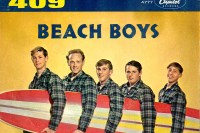
The Old Boys’ Network, by John Rae
At Westminster School, under the shadow of Big Ben and at the very centre of national life, 600 of the brightest, quirkiest and most stimulating boys and girls in the country spar with teachers of similar character. Results are spectacular. The difficulty for the headmaster, however, is that by long tradition some of the governors and a great number of those who teach at Westminster have little time for headmasters. So he treads a thorny path, saying to himself, as John Rae confesses to his diary: ‘I am lucky to be here, but my days are numbered.’
Actually Rae survived in the job from 1970 to 1986. These extracts from his diaries, put together just before his death two years ago, remind us what a time of change it was. Oxford and Cambridge abolished their scholarships; Rae admitted girls to the sixth form; he saw the parent body shift towards ‘more millionaires and less academics’, and he dealt increasingly with boys from dysfunctional and one-parent families. Teenage culture and drugs arrived, from neither of which a school in the centre of London could be immune.
The disciplinary and pastoral problems inevitable in a lively school with a liberal tradition took up a great deal of his time. Many Westminster masters considered themselves akin to university dons, there to teach and stimulate, not to be concerned with such matters as the school rules. Efficient organisation they tended to condemn as ‘un- Westminster’. So Rae was often in the front line as the school coped with a dissident or psychologically troubled boy or with a difficult parent, or with both.
Throughout it all, he remained the darling of the media. They knew he was always good for an instant quote, or an article, and with any luck for an indiscretion which would make headlines. With his film star good looks and mellifluous received pronunciation, he was a natural performer on television, and at a time when a Labour government was threatening independent schools he became their unofficial public voice. This did not make him universally popular among fellow-headmasters, many of whom disapproved of his high profile or, in a few cases, envied it. Some of us, though, were grateful to him for taking the risks and the flak while we got on with our jobs.
In fact he loved the excitement when the going got rough. He enjoyed outmanoeuvring critical governors, arguing repeatedly with members of staff, confronting awkward parents and debating in front of hostile public audiences. Nothing made the adrenalin flow better than a provocative statement to the media which would guarantee attacks from colleagues and multiple invitations to radio and television studios.
Most schools, perhaps in common with all closed communities, take themselves over-seriously. These diaries reveal beneath the serious public persona of John Rae a schoolmaster who got a lot of fun from the antics and the wit of his boys. He spent time giving personal advice on college entrance, teaching history, and joining them for fives or swimming. He was tough with those who got involved in drugs or stealing, but he relished the lighter side of school life. He chronicles his encounters with the member of the Marxist Society who cut lessons when they interfered with his political activities; with the boy who bred rats for a hobby (after buying his first rats at Harrods), and the boy whose response to a bad mark was to screw his essay up, put it in his mouth, chew it and spit the remains on to the floor. ‘I really care about the boys and their lives’, he writes in one entry and it is obvious that he did.
The Old Boys’ Network of the title is not mentioned once — unless we count a parent talking his son into an Oxford College in a way that no longer happens — and must surely have been the idea of the publisher. Don’t be put off by it. This is an enjoyable read.
Eric Anderson was headmaster of Eton from 1980-1994.





Comments